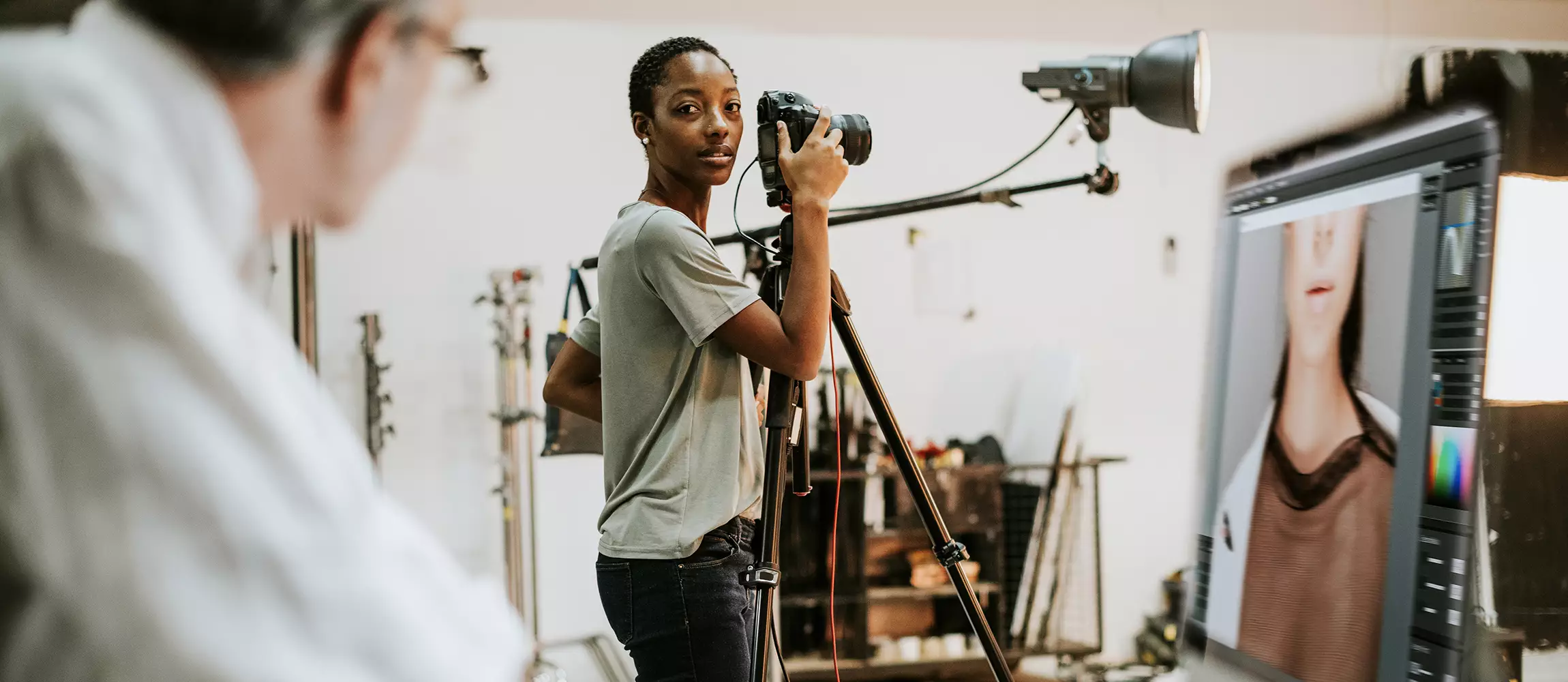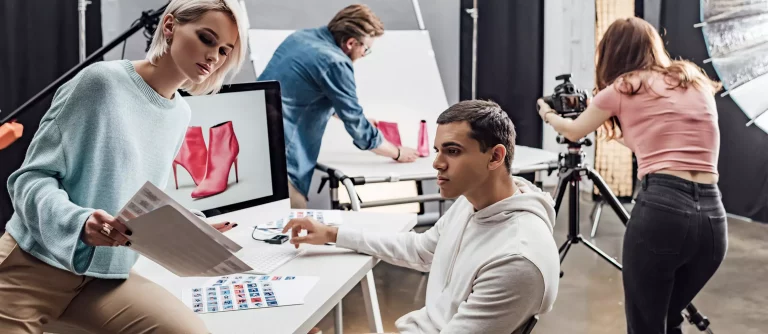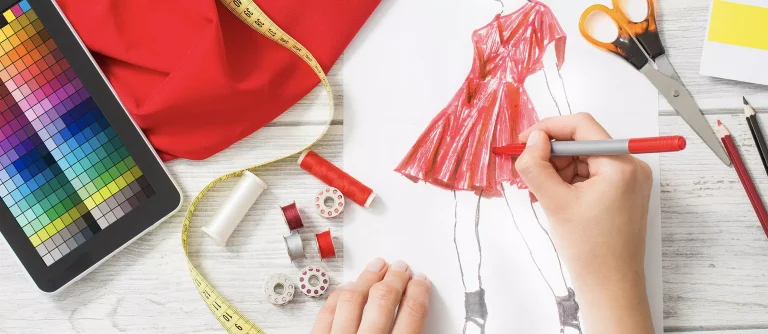How to Become a Professional Photographer
These days, most people carry a camera in their pocket and regularly upload photos to share with the world. Some of these people may even be photographers who own more advanced cameras than those found on smartphones.
But what sets these everyday Instagram photographers apart from professional photographers, and how does one become a professional photographer?
If you’ve found yourself wondering those things, you’ve come to the right place. In this guide, we’ll explain everything you need to know about professional photography, from what it means to how much you’ll make.
In a world full of amateurs, here’s how to become a professional.
What is a Professional Photographer?
What constitutes a professional in any industry? If you look at the word “professional,” you see that it contains “profession,” and a profession is a business, a career, a vocation. Therefore, a professional photographer is someone who makes money from their chosen craft.
Professional photographers produce and edit digital and film photos. They often focus on specialized subjects, such as portraits, landscapes, travel, weddings, fashion, news, and architecture. Clients and companies hire photographers to take photos and edit them during post-production using computer software.
Most professional photographers are self-employed, but some work for photography studios or second shooters alongside other professional photographers.
What Does a Typical Work Day for a Photographer Look Like?
Being a professional photographer isn’t just about taking high-quality photos. The day in the life of a photographer depends on whether you work alone or as a team, and what kinds of photographs you’re taking. A typical workday for a travel photographer will look different than an average day for a portrait photographer.
Working photographers will also tell you that every photo session is unique and that the process starts before the actual photoshoot. There’s also work involved after the shoot, so the typical 9-5 job doesn’t apply to professional photographers.
Let’s take a closer look at some of the general things you might do before, during, and after a photoshoot as a professional photographer.
Before the Photoshoot
Again, depending on what kind of photography you specialize in, you may need to meet with clients. Moreover, this is true for wedding photographers, as they typically need to go over what kinds of photos the couple wants, timelines, etc. You may also need to visit the shoot location to get a sense of the layout and lighting.
Day of the Photoshoot
Once you’re at the location, you’ll set up your equipment and meet with anyone else involved to discuss plans and finalize expectations. Once you get behind the camera, you’ll get to work your magic by composing your shots, using light and aperture, and everything else involved in capturing great photos.
After the Photoshoot
Firstly, backup all of your photos and sort through the menagerie to select the best of the best. From there, you’ll enter post-production mode, which means you’ll touch-up and edit the chosen photos in a program like Adobe Photoshop. The final images get sent to the client.
The Business Side
Self-employed photographers also have to take care of the administration side of their business. Moreover, this includes invoicing clients, reading and answering emails, making phone calls, scheduling work, marketing, updating your portfolio, and planning future shoots.
Will I Like Being a Professional Photographer?
What sets apart a hobbyist from a professional photographer? A successful photographer needs to know how to take amazing photos, but just because you’re skilled behind the camera, it doesn’t mean you’ll like being a professional photographer.
To make it in the photography industry, you should be:
Self-motivated: Working for yourself means finding the discipline and motivation to do what you need to do daily. If you’re a self-employed professional photographer, you’ll need to hone your time management skills, stay focused, and navigate slow seasons.
It’s easy to get distracted by life when you work for yourself, and it’s just as easy to get down on yourself or creatively blocked when work is slow. Self-motivation is essential to enjoying a photography career.
Business-savvy: Even if you’re not business-savvy initially, are you willing to boost your business knowledge to make a living as a photographer? Of course, you want to spend your days traveling to locations and taking photos. A larger part of professional photography is the not-so-glamorous side: paperwork, networking, budgeting, cold calling, etc.
If you would rather not worry about the administrative and business tasks that come with professional photography, it might be best to consider photographing as a hobby.
Friendly: As a professional photographer, you’ll need to network, work with clients, and possibly collaborate with other professionals. You don’t have to be the most extroverted person to enjoy a career in photography, but it helps if you’re good with people and enjoy being around them.
People may hire you because of your photographic skills, but even more people will hire you because you’re easy to work with. The more comfortable you can make people feel, the better.
Photography as a vocation isn’t for everyone. Even those passionate about photography and have a great mix of creative, technical, and business skills may find that making a living from what they love isn’t all it’s cracked up to be.
Here are some reasons why you might not like being a professional photographer:
It Becomes a Job: Your relationship with photography is likely to change once it becomes your livelihood. That’s not to say you won’t enjoy your work and still find passion in what you do, but spending long hours capturing images on the job can lead to a diminished desire to do it during personal time.
As a professional photographer, you won’t just be taking photos for the love of it – you’ll be taking pictures because you need to pay bills, and not all of those assignments will make your heart sing. If you can’t get past the j-o-b part of your craft, then you might not like being a professional.
Demanding Clients: If you’re a self-employed professional photographer, you’ll probably run across challenging clients now and then. Whether it’s chasing down late payments, disagreements, or dealing with hard-to-please people, you’ll need to hone your patience and customer service skills to continue working as a photographer.
If you work in a team environment or for a studio or publication, you may not directly be involved with clients, but you’ll still need to understand the value of compromise and teamwork.
Reality Over Fantasy: It’s easy to get lost in the fantasy of professional photography. You may daydream about capturing stunning images of exotic locations or winning awards for your fashion editorials. There’s nothing wrong with dreaming big, but the reality is often much different from the fantasy even if these things were to come true.
There is a lot of work involved, long hours standing, admin duties, and plenty of days spent editing photos in your pajamas. Consider everything, even the boring details, before deciding on a career as a professional photographer.
Typical Schooling for a Successful Photographer
Besides a creative eye and technical abilities, you do not need any formal schooling or qualifications to become a professional photographer. However, you can build your photography skills and earn a degree through in-person and online university courses.
There are various types of photography degrees and degree levels. These degree levels range from entry-level certificate programs to master’s degrees.
Certificate Programs
Community colleges typically offer photography certifications. These courses introduce students to basic photography principles, and students are usually able to complete certificate programs in less than a year. At this level, a photography student may take classes like Fundamentals of Photography, History of Photography, and Introduction to Digital/Film Photography. Skills and knowledge gained include:
- Image techniques and applications
- Photography software operation
- Film technique and darkroom operation
- Evolution of photography
This knowledge provides the foundation for starting a career as a professional photographer.
Associate’s Degree
Community colleges, art schools, and universities usually offer associate’s degrees in photography. These degree programs build on the foundations of photography and prepare students for entry-level photography positions. Coursework covers technical aspects and more specialized photography techniques like nature photography, studio photography, and photojournalism. Skills and knowledge gained include:
- Color theory and aesthetics
- Techniques for shooting in natural environments
- Lighting techniques
- Lenses, film, and digital media usage
An associate’s degree in photography typically takes two years to complete.
Bachelor’s Degree
Universities, art schools, and design institutes offer bachelor’s degrees in photography. This degree is also called a Bachelor of Fine Arts. This degree dives deeper into photographic concepts, theories, and techniques and requires students to complete general education courses like English, math, and history. Students working towards a bachelor’s degree might take classes like Advanced Photography, Editorial Photography, Photographic Lighting Techniques, and Contemporary Photography. Each course aims to help refine the student’s creative eye while broadening their knowledge of photography styles. The types of skills and knowledge gained while obtaining a bachelor’s degree in photography include:
- Contemporary image-making
- Lighting techniques (studio, natural, on-site, etc.)
- Photography narratives
- Advertising photography
- Fine art photography styles
A bachelor’s degree usually takes about four years to complete.
Master’s Degree
A Master of Fine Arts (MFA) in Photography teaches students to think critically and explore theory and learn essential skills to help them become professional photographers. Most master’s degrees require students to complete a final project, usually a work portfolio, throughout the degree program. After completing an MFA, graduates should have a solid understanding of photography principles, techniques, and artistic concepts, as well as skills in:
- Written and oral communication
- Professionalism (industry standards, photography trends, best practices, etc.)
- Problem-solving and critical thinking (technical challenges, connecting with an audience, creative conceptualization)
Students who have already earned a bachelor’s degree are eligible to earn an MFA. The degree program typically takes two years to complete.
Best Photography Colleges
The best photography colleges offer degree programs that prepare students for the professional photography industry. These colleges also give students hands-on experience, well-rounded coursework, and competitive tuition rates.
There are many colleges and universities with photography programs. Finding the best one depends on many factors, including tuition rates, location, acceptance requirements, and educational offerings. If you plan on earning a traditional college degree, you’ll want to consider these factors before choosing a photography college that fits your needs and wants.
The schools that we’ve listed here act as guides to show you what some of the best photography colleges offer. These schools help students master photography skills, develop critical thinking and creative problem-solving, and prepare them for life as professional photographers.
Best In-Person Photography Colleges
1. California Institute of the Arts (CalArts) – Valencia, California
Founded by Walt Disney, CalArts is continuously rated as one of the best professional photography institutes in the United States. Students can earn a Bachelor of Fine Arts and a Masters of Fine Arts in Photography and Media.
Coursework covers everything from the history of photography to the changing roles of photography in daily life. Students receive a robust education from world-class faculty and graduate with a toolbox full of creative skill and industry knowledge.
The estimated annual cost to attend CalArts is $53,466.
2. Parsons School of Design – New York, New York
Founded in 1896, Parsons School of Design offers BFA and MFA degrees in photography. Aspiring professional photographers learn analog and digital photo techniques and develop conceptual skills while exploring a range of career opportunities (fashion, fine art, commercial, etc.). Students can also take part in exhibitions, visit studios, and collaborate with international photographers.
The estimated annual cost to attend Parsons School of Design is $50,460.
3. Columbia College Chicago – Chicago, Illinois
Columbia College Chicago gives aspiring professional photographers everything they need to build their skills and industry knowledge. Offering undergraduate and graduate degrees in photography, students receive an education from a faculty of award-winning photographers, have access to professional equipment and studios, and have opportunities to study abroad and receive internships.
The school is also home to the Museum of Contemporary Photography, which acts as a classroom and provides work-study opportunities to photography students.
The estimated annual cost to attend Columbia College Chicago is $26,610.
Best Online Photography Colleges
Society’s digital nature makes pursuing a photography degree more accessible, especially for those who have job obligations and family responsibilities. Some students can’t commute to a traditional college campus or don’t have time to attend regular classes.
Instead, these aspiring photographers can pursue degrees online and receive the same credentials they would in an in-person setting.
1. New York Institute of Photography (NYIP)
NYIP offers a flexible certificate program that students can complete in 18 months. The school has been in business for over 100 years and is the largest online photography school. Professional photographers prepare all course materials, and students can learn at their own pace to fit their schedules. Students are also given opportunities to submit their photos and receive professional feedback within hours.
Tuition fees vary by course, and students can choose from two payment plans: pay in full or monthly bill pay. The average cost to pay in total is $549 and $709 monthly.
2. Southern New Hampshire University
Southern New Hampshire’s online university offers a bachelor’s degree in photography and covers topics like photographic practices, digital narratives, aesthetic concepts, and the business of photography. Students also learn business skills, like brand management and social media practices.
Students are allowed to bring up to 90 transfer credits into the online bachelor’s program. The estimated annual cost to attend Southern New Hampshire University online is $9,600.
3. Academy of Art University
The School of Photography at the Academy of Art University offers online undergraduate and graduate photography degrees. Students receive the same level of education as their campus counterparts but can complete their work in their own time.
Through workbooks and digital instructional materials, students learn how to create images that command attention and receive the tools they need to prepare them for a career in professional photography.
The estimated yearly expense for a full-time undergraduate student is $26,399. Online tuition costs will vary, and interested students should request more information.
Can I Skip College and Teach Myself How to be a Professional Photographer?
Yes, there are effective ways to learn photography without going to college or investing in an online photography school. There is an abundance of information, tools, and equipment for aspiring photographers to learn their craft.
The overwhelming amount of content is both a blessing and a curse, of course. Not all the information is useful, and you have to be self-motivated, as noted before, to teach yourself how to become a professional photographer.
However, if you’ve decided that college is not for you, whether due to time constraints, budget, or learning style, here are three non-traditional paths to achieve a photography education.
1. Attend Workshops and Take Courses
Going to workshops and taking courses, whether online or in-person, is a great way to build your photography skills.
Community colleges often have extension programs that offer all kinds of workshops. You can find a plethora of photography courses online at a fraction of the cost of a college degree. This route is also great for making connections, exploring different styles, and staying updated about photography opportunities.
2. Look Through Books and Online Portfolios
Print and digital portfolios are a rich source of inspiration and educational material. Visit the library and pour over the art history books and contemporary photography portfolios to get a sense of all the different styles and techniques. Online portfolios can also be inspiring, and you’ll often find professional photography advice on photographers’ blogs.
3. Watch Tutorials
If you’d rather watch a video than click through a website, then online video tutorials may be the perfect learning tool for you. YouTube is filled with photography tutorials, software how-tos, equipment reviews, photography tips, and pretty much anything you can think of that you’d want to learn about photography.
Which Software Programs do Professional Photographers Use?
Professional photographers use software programs to help them organize and edit their images and add effects, filters, and a host of other touch-ups and stylized looks. Some of the most popular photography software programs include:
Adobe Photoshop CC 2020: Photographers use Photoshop to edit images, and it’s one of the most used software programs by professional photographers, designers, illustrators, and artists of all kinds. It’s a subscription-based product that features a simple interface, vast tool panels, and powerful support for working with complex composite images.
Adobe Photoshop Lightroom Classic/CC: Photographers use Lightroom to catalog, raw-process, and edit images. The software is generally used in conjunction with Adobe Photoshop, but it can be purchased separately, especially if you do more photo enhancement than manipulation. Lightroom Classic stores photos on the computer, whereas Lightroom CC stores everything online.
DxO PhotoLab 3: Photographers use PhotoLab as an all-around photo editing and organization tool. With this software, you can browse and organize image folders, create projects, apply filters, raw-process images, make photo adjustments and lens corrections.
Affinity Photo 1.8: Affinity Photo gives photographers the same tools Photoshop provides without the subscription-based payment plan. Plus, this photo editor focuses on retouching, cloning, and healing. There’s even an Inpainting tool that automatically removes an object from the image.
ON1 Photo Raw 2020: Professional photographers use this software to browse, catalog, edit, develop, and adjust their photos. The program features portrait and local adjustment panels, an effects module, a wide range of filters, masking layers, and composting tools.
What are the Best Blogs and Influencer Accounts to Follow?
Photography blogs offer a wealth of information for aspiring professional photographers. The best blogs provide a mix of educational articles and inspiring takeaways. When you visit a photography blog, you may read interviews with famous photographers, get photography tips and tricks, learn business advice, and much more. Some of the best photography blogs to follow include:
- Creative Live – This blog provides readers with innovative tools and advice on sharing their photography to build a professional career.
- Digital Photography School – This blog offers a space for anyone who wants to build their skills and has a passion for photography. The website offers tips, techniques, free tutorials, reviews, and photography news and trends.
- FStoppers – This online community is the go-to place for professional photographers. Readers learn business tips, photo, and camera techniques and can find a wide range of gear reviews.
- PetaPixel – This blog is a resource for news, tips, tutorials, gear reviews and releases, and photography project ideas. Readers can also learn about photography, legal cases, copyright infringement, and photographer’s legal rights.
Social media is also an excellent creative and educational tool for professional photographers. Platforms like Instagram give you instant access to feeds full of beautiful photos that inspire and guide you on your photography path. Some of the top influencer accounts to follow include:
- David LaChapelle (Commercial and Fine Art) – Award-winning photographer David LaChapelle has played a huge role in modern photography. His densely colorful images and surreal subject matters never fail to grab your attention.
- Ellen von Unwerth (Fashion, Editorial, Advertising) – Unwerth’s feminist-focused images create an intoxicating feed of glamor, color, and female beauty.
- Chris Burkard (Art) – Burkard shoots landscape, lifestyle, and travel subjects, and his work has appeared in top magazines like Vogue and National Geographic. His feed features breathtaking images of landscapes and action shots.
- Bruce Gilden (Street) – Street photographer Bruce Gilden offers viewers a look at the everyday people we pass on the street. His feed is a mix of color and black and white shots captured throughout the decades.
Of course, you’ll discover many more photography blogs and influencers to follow throughout your journey, and perhaps you’ll be one yourself someday.
5 Ways to Break Into the Photographer Industry
Breaking into the industry is all about patience and perseverance. To become a professional photographer, you’ll want to sharpen your networking skills and get your work seen. Here are some ways to help you get your foot in the door.
Get Online
Create a portfolio website that showcases your work and who you are as a photographer. Your portfolio can act as your resume and as a marketing tool. Share it with potential clients and employers, link it to your social media accounts, and keep it updated.
You can use a website builder like WordPress, Squarespace, or Wix to design a beautiful layout that quickly highlights your best work. Be sure to include an About Page so that people get to know the person behind the lens.
Get Social
You’re probably already active on social media, but as a professional photographer, you’ll want a dedicated space for your business endeavors. Make separate accounts for your photography on Instagram, LinkedIn, Facebook, and the like. Not only will people be able to see your photos, but you’ll have opportunities to network with other industry professionals, potential clients, and fans.
Become an Apprentice
Both self-taught and college-educated photographers often credit their success to internships. Although not always paid, the mentorship and hands-on experience provided is invaluable and can lead to open doors. You can find internships on job boards, through educational programs, and via photography networks like forums and social media groups.
Continue Learning
Whether it’s a paid tutorial or free YouTube tutorial, if it helps you further your photography goals, it’s worth the investment – be it time or money. Even if you graduate with a BFA, never stop learning and building your professional photography skills. There’s always more to learn.
Keep Grinding
One of the most important things to remember is not to let early failures set you back. You’ll always have competition, and there will always be critiques. You won’t win every contest or receive the best feedback, and your creative ideas won’t always work out as you envisioned them. It’s okay because it’s all part of the process.
Only compete with yourself. Keep exploring, discovering, learning, and practicing, and enjoy the journey.
FAQ
We will now take a look at some of the general questions that budding photographers usually ask.
How much money do professional photographers typically make?
Photographer salaries vary by specialization and location. Some earn less than $20,000, while others make over $100,000. According to the U.S. Bureau of Labor Statistics, the median annual wage for photographers is $36,280, or $17.44 per hour. The lowest 10 percent earned less than $9.92 per hour, and the highest 10 percent earned more than $38.19 per hour.
What do you study to be a professional photographer?
Aspiring professional photographers should know how to work with different types of camera equipment and have a solid understanding of photo techniques. What you study depends on whether you choose to earn a degree or self-teach. Still, in general, you’ll want to learn the fundamentals of photography, color theory, lighting techniques, composition, and processing.
Is photography a good career choice?
Photography is a good career choice if you are passionate about your craft, self-motivated, and are willing to put in the hard work to get where you want to be in your industry. It’s not always easy or certain, but not much in life is, so a photography career is worth considering if you’re interested in the art and business sides.
Are there a lot of job openings for photographers?
According to the U.S. Bureau of Labor Statistics, there were 133,500 jobs in 2019. From now until 2029, they predict an overall 4 percent decline in growth rate. However, self-employed, portrait, and commercial photographer employment is expected to grow.
What’s the best website to find photographer job listings?
You can find photography job listings on job boards and websites like:
You can also join photography groups (online and in-person) and associations/organizations to stay informed on job opportunities. Photography organizations will often send out email newsletters with job listings.
What are some big companies that hire professional photographers?
You never know what dream companies are hiring professional photographers at any given time, but over the years, big businesses like Amazon, Macy’s, Martha Stewart Living, Canon, Balance, and Urban Outfitters have posted open positions.







